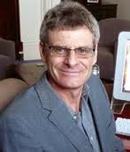Contact
Email:
Mark.Colyvan@sydney.edu.au
Website:
Homepage
Further Information
Prof. Mark Colyvan is an Australian Research Council Future Fellow and Professor of Philosophy at the University of Sydney. He is currently director of the Sydney Centre for the Foundations of Science and president of the Society for Risk Analysis (Australia and New Zealand). He is a past president of the Australasian Association of Philosophy. He obtained a BSc (Honours) in mathematics from the University of New England in 1993 and a PhD in philosophy from the Australian National University in 1998.
He has taught at a number of universities around the world, including: The University of Sydney (Australia), The Australian National University (Australia), The California Institute of Technology (U.S.A), The University of California Irvine (U.S.A), The Central Institute of Higher Tibetan Studies (India), The Federal University of Santa Catarina (Brazil), The University of Otago (New Zealand), and Tilburg University (The Netherlands). He has presented his research results at universities and conferences in over 20 countries. He is on the editorial boards of TheBulletin of Symbolic Logic, The Australasian Journal of Philosophy, and Conservation Letters.
Research Interests
His research interests include:
- philosophy of logic
- philosophy of mathematics
- decision theory
- environmental philosophy
- ecology and conservation biology
He has published 3 books:
- The Indispensability of Mathematics (OUP, 2001)
- Ecological Orbits: How Planets Move and Populations Grow (co-authored with Lev Ginzburg, OUP 2004)
- and An Introduction to the Philosophy of Mathematics (CUP, 2012)
He has published over 70 refereed articles. Some of these have appeared in leading philosophy journals such as Mind, The Journal of Philosophy, Noûs, and The Australasian Journal of Philosophy, and in leading biology journals suh as The Quarterly Review of Biology, Biological Conservation,Conservation Biology, Ecological Applications, Conservation Letters, and Trends in Ecology and Evolution.


